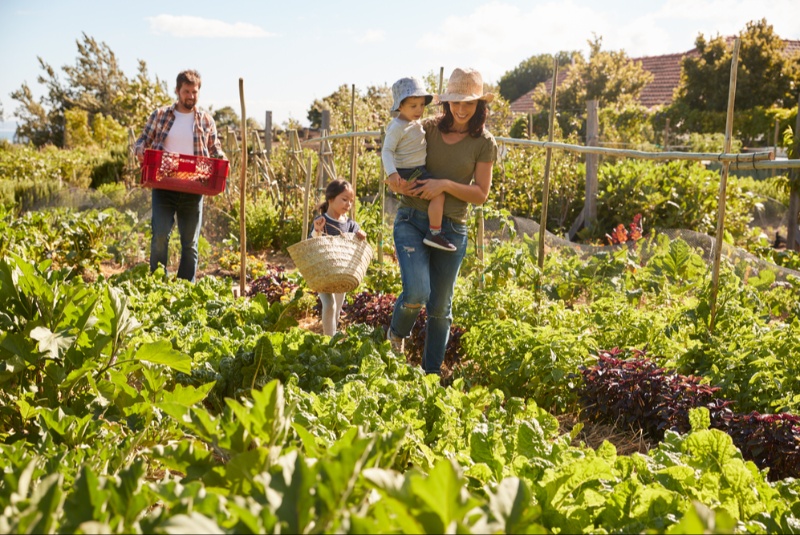In an era where individuals are seeking more control over their food sources, growing your vegetables at home stands out as a viable and rewarding option. This wholesome activity not only promises fresher, more nutritious produce but also fosters a deeper connection with the food we consume. With a little time and patience, your backyard or even a small balcony can turn into a thriving vegetable garden. Let's delve into the advantages of home-grown vegetables and how to start your own garden.
The Harvest of Home-Grown Vegetables
Growing your vegetables at home offers unprecedented freshness. You can harvest your veggies at the perfect time, ensuring they are at their peak in terms of flavor and nutrient content. Moreover, your home-grown greens will be free from harmful pesticides and genetically modified organisms (GMOs), granting you a purer, healthier diet.
Nutrient Density: When you pick a ripe tomato from your garden and immediately add it to your salad, you're getting the maximum nutrient content. Vegetables lose nutrients over time, so the shorter the time between harvest and consumption, the more nutritious your meal.
Taste and Flavor: There's something undeniably satisfying about biting into a tomato that's still warm from the sun and bursting with flavor. Home-grown vegetables often taste better than their store-bought counterparts.
Chemical-Free: By growing your vegetables, you have control over the growing process, which means you can avoid using harmful pesticides and chemicals. This leads to safer and healthier food for you and your family.
Sustainable Living and Environmental Benefits
A home vegetable garden reduces the carbon footprint associated with transporting food from farms to your table. Furthermore, it promotes biodiversity in your surroundings, creating a habitat for beneficial insects and microbes.
Reduced Food Miles: The typical journey of store-bought produce involves long distances, often crossing borders and continents. By growing your vegetables at home, you drastically reduce the "food miles" associated with your meals. This reduction in transportation emissions contributes to a more sustainable planet.
Biodiversity: Home gardens can become mini-ecosystems, attracting a variety of beneficial insects like bees and ladybugs. These insects can help pollinate your plants and control pests naturally, reducing the need for chemical interventions.
Composting: Home gardening often goes hand in hand with composting. Your kitchen scraps and garden waste can be turned into nutrient-rich compost, reducing landfill waste and providing your garden with a natural fertilizer.
Cost-Effectiveness
Although starting a vegetable garden involves an initial investment, in the long run, it can be a cost-effective way to secure a steady supply of fresh produce. Moreover, you can grow organic vegetables, which are often pricier in markets, at a fraction of the cost.
Return on Investment: Consider your initial investment in gardening tools, seeds, and soil amendments as an investment that pays dividends in the form of fresh produce. Over time, the savings from not purchasing these vegetables in stores will far outweigh your initial costs.
Year-Round Savings: With proper planning and techniques like succession planting, you can extend your growing season and have a continuous supply of vegetables throughout the year, further enhancing your savings.
A Therapeutic Endeavor
Tending to a garden is therapeutic. It offers a physical workout, reduces stress, and can improve mental health. Additionally, it can be a learning experience for children, imparting valuable lessons on patience, responsibility, and the origins of their food.
Physical Activity: Gardening involves activities like digging, planting, weeding, and harvesting, providing an excellent physical workout. It can be a refreshing change from sedentary work or screen time.
Stress Reduction: Spending time in nature and tending to plants has been shown to reduce stress and promote relaxation. Gardening can be a form of mindfulness, allowing you to be fully present in the moment.
Educational Opportunities: Gardening is a hands-on learning experience for children and adults alike. It provides an opportunity to learn about plant life cycles, ecosystems, and the importance of environmental stewardship.

Getting Started: Planning Your Vegetable Garden
1. Selecting the Right Location
Identify a suitable location that receives at least 6-8 hours of sunlight daily. Ensure the site has good drainage to prevent waterlogging, which can damage the roots.
2. Soil Preparation
A thriving garden begins with healthy soil. Start by testing the soil pH and nutrient levels. Ideally, the soil should be rich in organic matter with a pH ranging between 6.0 and 7.0. Amend the soil with compost or manure to improve its fertility.
3. Choosing Your Vegetables
Select vegetable varieties that are well-suited to your region's climate. Begin with easy-to-grow options like tomatoes, lettuce, and herbs to gain confidence.
4. Planting Time
Understanding the right time to plant your vegetables is crucial. Some vegetables are cool-season crops, like peas and broccoli, while others, such as tomatoes and peppers, thrive in warmer temperatures.
5. Caring for Your Garden
Regular watering, weeding, and pest management are essential for a successful vegetable garden. Utilize organic pest control methods to maintain a healthy ecosystem.
Harvesting and Enjoying Your Produce
With the right care, your garden will start to yield produce in a few months. Harvest your vegetables at the right stage of maturity to enjoy the freshest flavors. After harvesting, enjoy the fruits of your labor in delicious home-cooked meals, where the star ingredients are the vegetables grown in your backyard.
Savor the Moment: There's a sense of pride and satisfaction that comes with preparing and enjoying meals made from your own garden. Whether it's a simple salad or a hearty stew, the flavors will be enriched by the knowledge that you nurtured these ingredients from seed to plate.
Share the Bounty: As your garden flourishes, you may find yourself with an abundance of produce. Consider sharing your surplus with friends and neighbors, fostering a sense of community and goodwill.
Preserve for Later: If your garden produces more than you can consume, consider preserving the excess through methods like canning, freezing, or drying. This way, you can enjoy your home-grown vegetables even during the off-season.
Tips and Tricks for a Successful Vegetable Garden
Companion Planting: Some plants grow better together. For instance, tomatoes benefit from being planted near basil, which helps deter pests.
Vertical Gardening: If space is a constraint, consider vertical gardening. Utilize trellises, nets, or stakes to grow vegetables upwards.
Mulching: Applying mulch helps retain soil moisture and prevents weeds.
Succession Planting: To have a continuous supply of vegetables, practice succession planting, where you plant new crops as you harvest the old ones.
Growing Your Garden, Growing Yourself
Growing your own vegetables at home is a fulfilling journey towards self-sustainability. Apart from ensuring a fresh and organic supply of vegetables, it fosters a harmonious relationship with nature. As you nurture your garden, it rewards you with nourishing produce, a sense of accomplishment, and a tranquil sanctuary right in your backyard. Embark on this rewarding journey and embrace the manifold joys of growing your own vegetables at home.
In an era where individuals are seeking more control over their food sources, growing your own vegetables at home stands out as a viable and rewarding option. This wholesome activity not only promises fresher, more nutritious produce but also fosters a deeper connection with the food we consume. With a little time and patience, your backyard or even a small balcony can turn into a thriving vegetable garden. Let's delve into the advantages of home-grown vegetables and how to start your own garden.




